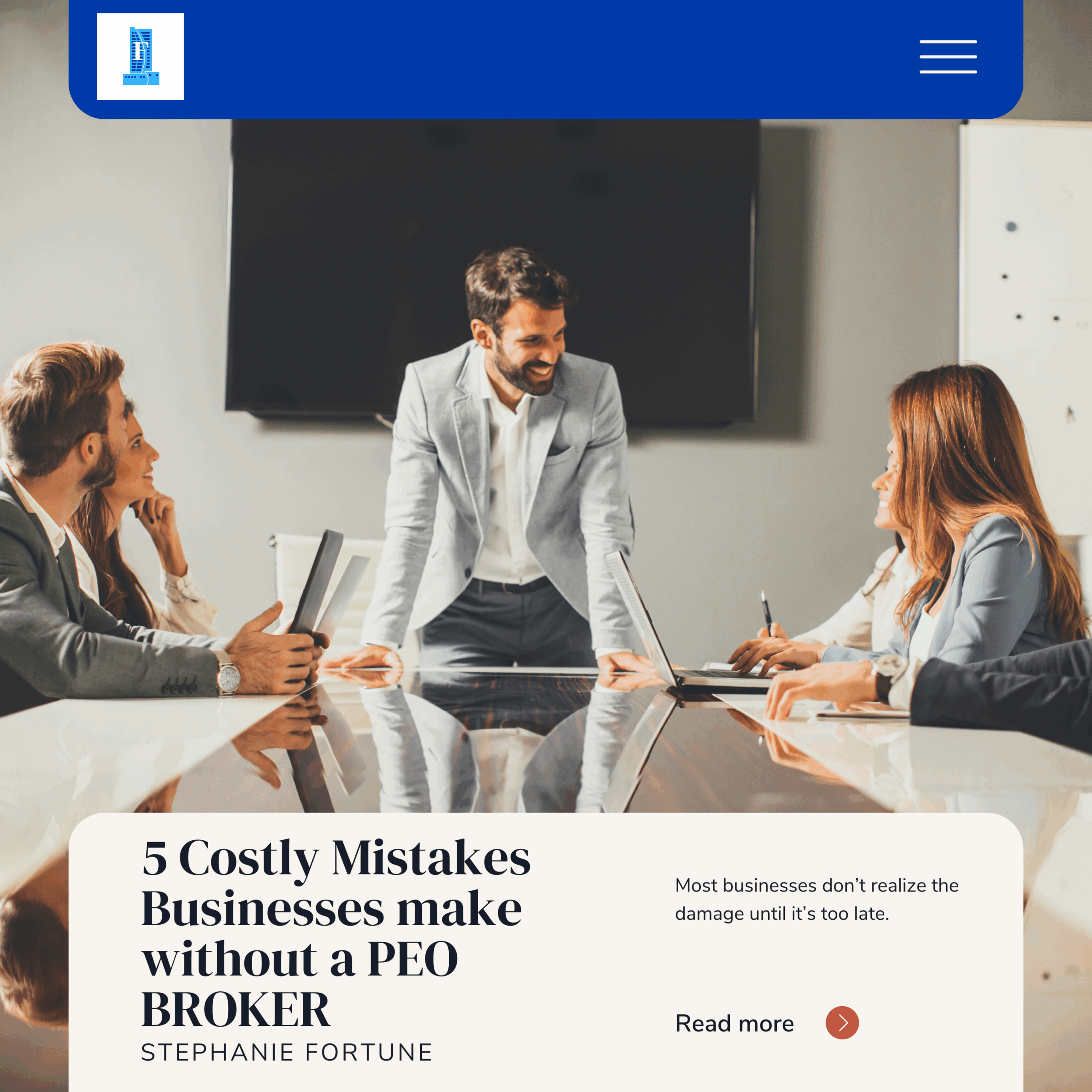Selecting a PEO can be a game-changer for businesses, but choosing one without broker expertise often leads to significant financial and operational missteps. Here are five common errors companies make—and how a PEO broker helps you avoid them.
Overpaying Due to Limited Market Insight
Without a broker, businesses often accept the first proposal they receive, missing out on better pricing or offers. Brokers, with access to multiple PEOs, can compare carrier rates and plan designs to identify optimal packages. They uncover hidden discounts and cost-saving structures that a direct buyer might overlook, ensuring businesses get top-tier benefits without paying a premium.
Falling Into Hidden Fee Traps
PEO proposals can conceal fees—such as administrative charges, set-up costs, or hefty exit penalties. These expenses often go unnoticed until after onboarding. Brokers, equipped with industry benchmarking knowledge, scrutinize contracts to identify and eliminate these clauses. Clients working directly with brokers avoid unexpected charges that can compromise their budget.
Misjudging Compliance and Payroll Risks
Handling payroll in-house or selecting a PEO without expert vetting can lead to classification errors, tax penalties, or noncompliance. For instance, misclassifying employees or misfiling 1099s can result in IRS fines and legal action. Brokers distinguish PEOs that proactively manage these risks and audit their track record—helping clients avoid costly compliance pitfalls that are otherwise invisible.
Partnering with a Poor-Fit Provider
Not all PEOs are equal—some specialize in specific industries or regions, while others cater to different company sizes. Without a broker, businesses risk being paired with a mismatch, leading to subpar service or scalability issues. Brokers perform needs assessments and align clients with PEOs that match their sector, culture, growth stage, and geographic needs, minimizing friction and future disruption.
Wasting Time on Due Diligence
Evaluating PEOs requires extensive research: dissecting proposals, comparing pricing models, verifying accreditation and insurance coverage, and checking performance with past clients. This process is time-consuming and prone to error. Brokers manage the entire evaluation—from vetting options to negotiating terms—saving business leaders weeks of work and reducing the chance of misinformed decisions.
Conclusion
A PEO broker isn’t just a facilitator; they are an advocate who protects your interests. They level the playing field with PEO providers by offering pricing transparency, contract oversight, compliance guards, targeted matching, and project management. Avoiding broker guidance often leads to overpaying, exposure to hidden costs, regulatory trouble, mismatches, and wasted time. With a broker, you get a curated, risk-resistant PEO solution built for your unique business needs.
References
- Broker-friendly PEO advantages: https://www.bcnservices.com/peo-brokers-pros-and-cons/
- Hidden PEO fees breakdown: https://emphasishr.com/how-much-does-a-peo-really-cost-breaking-down-the-fees/
- Pitfalls in international PEO setups: https://ins-globalconsulting.com/news-post/common-mistakes-peo/
- Payroll and compliance risks: https://dinsmoresteele.com/dinsmore-steele-blog/you-can-avoid-serious-payroll-problems-with-a-peo
- PEO broker role explained: https://thatch.ai/blog/what-is-a-peo-broker
- Cost structures and hidden charges overview: https://www.themissionhr.com/post/unveiling-the-truth-how-much-does-a-peo-really-cost-prepare-to-be-surprised

